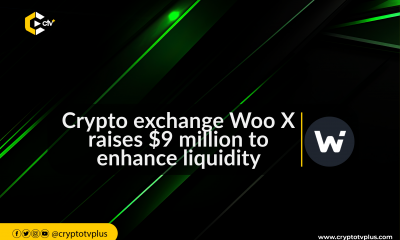News
How Liquidity Influences the Choice of Crypto Investors

The cryptocurrency market is filled with thousands of cryptocurrencies, some listed and trading on exchanges, others on the process, while some at the moment are currently not listed.
For those listed, some are limited to the exchange wherein they are traded; others enjoy global presence on exchanges. An example of this is Bitcoin (BTC). As newer coins continue to come to the market joining the existing and together increasing the total market capitalization as they create value, investors who buy in early on those ‘good’ coins are expected to make massive returns, for those less fortunate, meager returns or in the worst cases, massive losses.
In a perfect system, every crypto coin or token listed on an exchange will grow in value and give everyone gains. But that’s not how it works. In reality, some coins upon listing could send investors to financial hell. There are therefore several key indicators crypto investors and also traders consider before buying into a cryptocurrency. Amongst the several key points is Liquidity.
What’s Liquidity?
Liquidity simply means the fluidity at which a cryptocurrency can be bought and sold. Globally, chicken is a good product. There isn’t any nation that has a ban on the sale and purchase of chickens. This means for anyone who wishes to purchase chicken, he is very much likely to find it. Same goes for Water.
There’s a matured market where there’s constant demand such that if anyone wishes to sell, he will see buyers and if anyone wants to buy, he will see sellers. This is the same for any cryptocurrency that will be a good choice for crypto investors and/or traders.

A choice cryptocurrency for any savvy investor must be liquid; there must be readily available buyers and sellers of that cryptocurrency. Though some may not be exactly liquid (not enough buyers and sellers) at its’ early time, but there are key indicators that the coin will be liquid at a certain (near) future.
There are combinations of factors that will drive the liquidity of a new coin, one of which is the exchange it is listed on and the popularity of the coin. An obscure cryptocurrency exchange at the far end of the planet may not command enough buy and sell orders as the one seated high at the center of the earth.
Buying an illiquid Cryptocurrency; what could go wrong?
While buying a cryptocurrency that is not yet liquid may not be a bad thing, this is because they are other factors that may drive that investment decision. This is mostly done at the early time of a cryptocurrency and the fundamentals checks out after doing due diligence on the cryptocurrency. However, buying an illiquid cryptocurrency may present some significant damage to an investor’s portfolio.
As noted above, an illiquid cryptocurrency doesn’t command enough buyers and sellers to and therefore, an investor who purchases such cryptocurrencies may find it difficult to sell and/or recoup his investment. Even if there’s an artificial increase in price (pump) in price by a quite insignificant volume, there will still be difficulties in selling off and making profit.
One of the consequences of this is that an investor’s funds are left hanging on a potential risky investment, he cannot easily liquidate his investment. Another is that the investment could potential end at a disturbing loss thereby negatively impacting the portfolio of the investor.
Conclusion
Every investor has varying investment preference and risk. However, there are standard key evaluation metrics to consider when conducting due diligence on a cryptocurrency. The decision of an investor will likely be a weighted average of the various key metrics. The choice to invest in an illiquid cryptocurrency may be a good one, it may not.
The decision could be influenced by other key indicators, this notwithstanding, every investor takes the liquidity and expected liquidity of a cryptocurrency into consideration when making that decision of Invest or Not.
























